Jinjiang shoe companies spend ten years: a year made shoes can not sell for ten years
Plan focus:
1. Like Jiangsu and Zhejiang, Jinjiang’s bosses can endure hardships and learn abilities. One is relying on shoes to make money while the other is swarming. However, unlike Zhejiang merchants, entrepreneurs in Jinjiang are more concentrated in township entrepreneurs.
2. The listed shoe enterprises can come out under the trend of sliding down the Jinjiang footwear industry. Thanks largely to the financing of listing, they have the capital for rapid expansion, and this expansion is reflected in the number of stores opened.
3. "For large brand companies, the government has been supporting and helping them. They do not want them to close down. But now the government has no ability or the need to do so. Del Hui and Xi Delong's failure can not complain to anyone. Being dealt with, bosses are also looking for new outlets."
This winter, it is particularly cold for shoe companies in Jinjiang, Fujian. Before New Year's Day, in the announcement of disposal of a debt asset package released by the local official media “Fujian Dailyâ€, Jae-Dee, who had relied on Jay Chou’s endorsement and slogan “Deerway, On The Wayâ€, was widely recognized in the country for its sneaker brand. With 600 million yuan in debt, Delphi's multiple assets, including plant, land, and warehouses, were listed for mortgage auctions.
Just five months ago, on August 5, 2017, another well-known shoe company in Jinjiang, Xi Delong, was also publicly announced by Jinjiang City Court for bankruptcy and reorganization because of debt problems.
Relying on the footwear industry, Jinjiang, a small fishing village located on the southeast coast, has developed into one of the richest county-level cities in the country after the reform and opening up. In 2005, Hongxingerke was listed in Singapore. In 2007, Anta landed on the Hong Kong Stock Exchange. In 2009, many well-known brands including Xtep, Peak, 361° and others took to the capital market. Jinjiang shoe companies entered their peak period, with a population of 2 million. More than one-third of them live around the shoemaking industry chain.
However, for the Jinjiang footwear industry, the peak is only the short-lived point of the steep parabola in their growth trajectory. Behind the tide of listing is the closure of hundreds of small and medium-sized shoe factories. In 2011, Hongxing Erke suspended trading on the Singapore Stock Exchange for alleged financial frauds, marking the beginning of a dilemma for large shoe companies.
With the bankruptcy of Xi Delong and Del Hui, consumers who used to know them are not satisfied, but inside the Jinjiang shoe circle, they are surprisingly calm. “In 2011, the shoes made by Jinjiang have been sold for ten years.†A shoe factory owner who once worked at the local shoe company’s chamber of commerce lamented Tencent’s “Prism,†and for him, the Jinjiang brand shoe company. Decline is more like a late implementation ceremony after the final judgment.
Grasshoppers, cottages, brands, capital, expansion, and depravity, Jinjiang are getting away from the “shoesâ€.
Jinjiang Business People's Late Brand Awakening
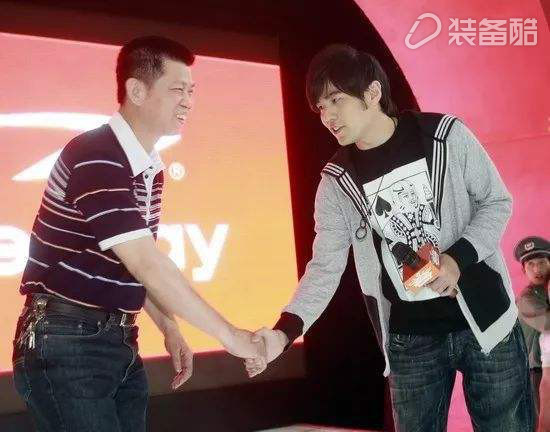
(Deceased Delphi President Ding Liang and Jay Chou)
Similar to the coasts of Jiangsu and Zhejiang, the Jinjiang River is poor and has scarce resources. This is not a soil that can breed agricultural civilization. During the Ming and Qing Dynasties, the southern Fujianese became the main force of the Nanyang. After the reform and opening up, the overseas Chinese returned to China and Jinjiang found a way to survive. The owner of an underwear factory in Jinjiang, just because of the overseas Chinese sister's return to China, learned that there was such a thing as a bra. So he took down the research and made a fortnightly sale from thirty to fifty self-produced shops and gradually developed into a mass production plant.
Jinjiang shoe owners have the same experience. 361 degrees Ding Jiantong relied on the 2,000 yuan raised from fishing and playing in the field to build a family workshop with Nissan 5 pairs of leather shoes in his living room; Pick Xu Jingnan opened a sports shoe factory with his savings from a pull cart. The Dbu Ding Shui Bo Ze and the sister brothers each invested 500 yuan to build a shack and make slippers at the edge of the village.
“Like Jiangsu and Zhejiang, Jinjiang’s bosses are able to endure hardship and learning ability. One family earns money by selling shoes, while others are swarming.†A local shoe owner described Tencent’s “Prism,†but he also believes that Unlike Zhejiang merchants, the entrepreneurs in Jinjiang are more concentrated in township entrepreneurs. “They will not go to real estate speculators like Wenzhou people. They are also not good at using finance. They are generally conservative. The development of enterprises is usually tepid. There are not particularly bad things that are particularly good things."
Mets Bonwe, a Zhejiang shoe and apparel company established in 1995, quickly relied on the OEM model of its flagship brand. However, it began to establish the brand of Jinjiang shoe company around 1990, but it has long been willing to make OEMs for Adi and Nike. Until 1998, only under the strong guidance of the government began to realize the concept of "brand building market" and put forward "the implementation of regional brand strategy to seize the market's dominant power." By 2004, the Jinjiang municipal government was still spending more than 18 million yuan to reward the previous year's brand-building, certification, and bidding companies, encouraging companies to go global.
To be sure, around the year 2005, a group of shoe owners who took the lead off the “thinking burdens†finally began to raise their sleeves on the road to licensing: In the 2006 World Cup in Germany, 25% of CCTV5's advertisements came from the Jinjiang brand. Was ridiculed as "Jinjiang Channel", about the story of Jinjiang build brand, but also a sudden rise overnight.
In 2003, Delville signed Jay Chou 10 million for two years, and in 2005, Xtep 8 million for the sponsor of the Nanjing National Games. Did not think that Mizuno from Japan took 10 million half-way to kill, so just left Nanjing Ding The water wave immediately returned, raising the price to 15 million. In the same year, Peak’s $4 million became a sponsor of Yao Ming’s NBA team’s Houston Rockets Toyota Center.
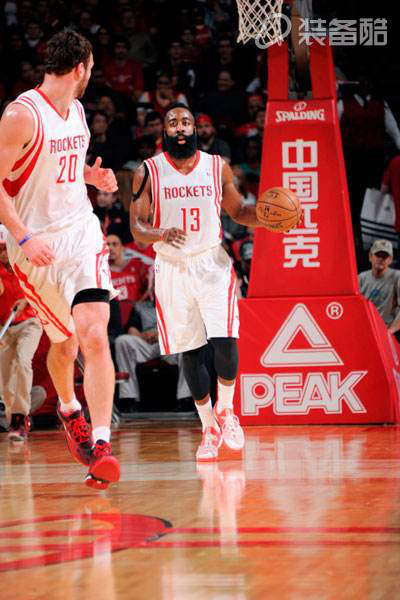
(Pick billboard on NBA stadium)
Some swords go to the front. The "Jordan" brand established in Jinjiang in 2000 relied on the same name as the United States "Jordan" to create a distinctive brand image and market position. In 2012 Michael Jordan sued China Jordan. After a three-year lawsuit, the Beijing Higher People’s Court of Final Appeal ruled out Jordan’s loss in 2015. The dissatisfied basketball god continued to appeal to the National High Court and finally won the lawsuit at the end of 2016. However, in July last year, because of sponsoring the Tianjin National Games, China’s losing Jordan received a lawyer letter from the United States Jordan, the brand was in deep depression. “Barely†China’s Jordan counterclaimed the lawyer’s letter and infringed its right of reputation and claimed 1.1 million from the other party. .
Despite brand awakening, in this batch of “avant-garde†bosses, Jinjiang merchants still maintain certain characteristics. A practitioner who has served as an executive in a number of Jinjiang shoe enterprises once summed up with Tencent's Prism. Compared with Zhejiang merchants, Jinjiang merchants have a more family-oriented concept, and the survival environment of professional managers in the enterprise after they grow up. Not as good as Jiangsu and Zhejiang, Jinjiang merchants are not as hug-witted as Zhejiang merchants, and there is not much intersection and mutual assistance among enterprises.
A local shoe company who once had a middle-sized shoe company recalled to Tencent's Prism. Peiking Xu Jingnan, like everyone else, listed in the two years before its listing, suddenly became big after the IPO, and it was in contact with its own small-scale enterprise. There is a sudden loss. For those shoe companies that have created a national brand, the boss thinks "there is nothing extraordinary."
After a short capital feast
Around 2008, due to the reduction of foreign trade orders and the appreciation of the renminbi, many small and medium-sized shoe factories that made a living from export processing failed to survive the impact. At that time, those big Jinjiang shoe companies entered the capital market and enjoyed the capital feast.
Looking back now, compared with the early closure of the small and medium-sized factories, those brands that took the lead in expanding the size of the Jinjiang shoe ultimately failed to escape this industrial upgrade.
In the early days, these Jinjiang shoe companies that entered the capital market did reflect differences. In the two years after its listing, 361 Degrees (01361.HK) achieved a revenue of 5.5 billion yuan, an increase of 30% from the time of listing in 2009, a net profit of over 900 million, and exceeded 1.1 billion, surpassing the threshold of one billion; Xtep International (01368) .HK) The revenue for listing in 2008 was only 2.8 billion yuan, peaking at 5.5 billion yuan in 2012, net profit also breaking from 500 million yuan to 1 billion yuan; in 2011, Peak Sports (01968.HK)47 Billion revenue and 800 million net profit.
Listed shoe companies can come out of the trend of the entire Jinjiang footwear industry to come out, to a large extent due to listing financing, has a rapid expansion of capital, and this expansion is again reflected in the number of open stores. According to Hong Kong stocks financial report, in June 2008, 361 degrees authorized the number of retail outlets 4632, reached 7,681 in mid-2011, an increase of 66%; in 2011, Xtep also rose from 7,500 stores to 7,596; Peak in 2009 On the basis of 6000 stores, it has reached nearly 8,000 in two years.
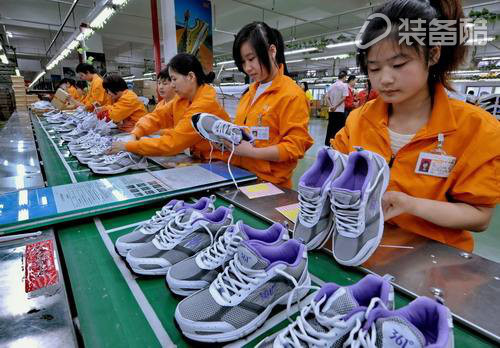
(361 degree shoemaking workshop)
“At that time, everyone also compared each other's stores and opened many new stores. The government also supported the competition. At that time, there was an official competition ranking to see who could compare them. Everyone was proud of it.†A shoe company owner in Jinjiang recalled to Tencent “Prism†that building more factories and opening more stores is the inertia of the bosses of Jinjiang.
Relying on a purely vertical expansion model, of course, it can be fragile. In the face of e-commerce shocks, consumption upgrades, and excess production capacity, the strategy of expanding stores quickly became falsified. Before Delphi and Hi Delong collapsed, Jinjiang shoe companies had already collectively indulged: As of fiscal 2016, net profit of 361 degrees was reported. It has fallen to 400 million yuan, less than half the time it was listed; Xtep International’s net profit of 500 million yuan was at the same level as listed; Peak Sports delisted from Hong Kong stocks in 2016; elegant bird (603555.SH) pushed hard into A shares in 2014. The annual performance turned face-to-face, with revenue and net profit falling by 20% and 26% respectively from the same period of last year before the listing.
When Jinjiang shoe enterprises are still expanding, there is research report analysis that Jinjiang brand convergence in the positioning and operation model leads to their own lack of characteristics, companies have little difference in capabilities. The latecomers are familiar with the success of the first-line companies and can quickly catch up if they can grasp the opportunities for growth in the industry. When the industry entered the adjustment period, the competitive landscape was solidified, making it difficult for these brands to produce true breakouts.
A senior executive who once worked for OEMs for a number of listed shoe companies told Tencent “Prism†that for them, listing and opening a store were only superficial. At that time, a large number of shoe companies had problems with the capital chain, and only a few had Health, even if it is a listed company, they do not allow credit.
After the problems with the head company of Jinjiang Footwear, the entire industry chain also suffered a fatal blow. The above-mentioned executives of the executive services collapsed a few years ago. He himself also traveled to Zhejiang, completely away from the Jinjiang shoe ring. The owner of a medium-sized shoe factory that has been in contact with the “Prism†of Tencent since the end of the 1980s started to engage in shoe-making and OEM business. It also suffered bankruptcy around 2015. He once planned to make a lifetime shoe, now Can only avoid debt.
“For large brand companies, the government has been supporting and helping them. They don’t want them to close down. But now the government has no ability or need to do so. Del Hui and Xi Delong’s collapse can't blame anyone. Aftermath work is being dealt with. The bosses are also looking for new outlets.†Lu Qinghua, director of the Center for Business Research and Development at the Overseas Chinese University in Quanzhou, told Tencent “Prismâ€.
In the “Thirteenth Five-Year Plan†in Quanzhou, the automotive and integrated circuit industries have been developed as the key industries in the future. The “Statistical Communiqué of the 2016 National Economic and Social Development of Jinjiang City†shows that the regional GDP was 174.4 billion yuan and the footwear industry was The output value is 100.9 billion yuan, accounting for 58%. In 2012, this figure was 70%.
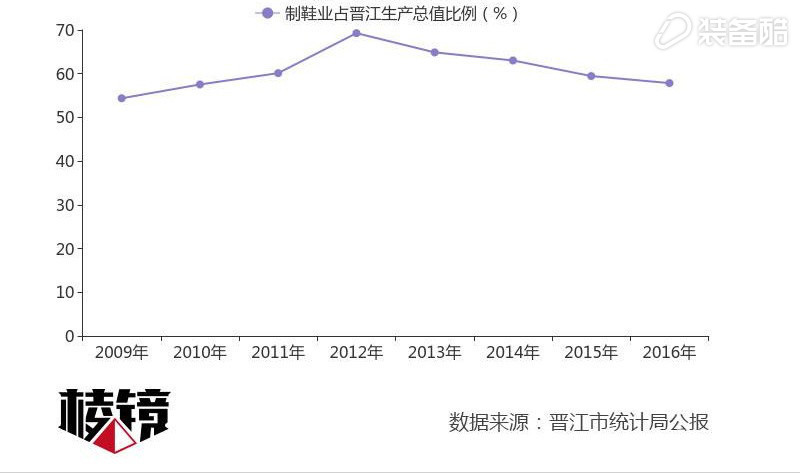
“Having undergone the transformation period a few years ago, the economy of the Jinjiang region can be said to have escaped the dependence on the footwear industry,†said Lu Qinghua.
Who will be the next Del Hui?
With the transformation of users, transformation of localities, and the downturn of the industry, the surviving Jinjiang brand still has to continue to live.
In early 2015, at the special ordering meeting, Ding Shuibo presented the slogan of “Returning from the fashion movement†in the presence of 3,000 dealers. He has always favored the special steps of entertainment stars like Nicholas Tse and Han Geng, hoping to turn from casual sports brands to professional sports. Brand; 361 degrees invested in the Nordic outdoor sports brand ONE WAY and created 361° children's wear, which made efforts in the field of professional sports and children's clothing. After the listing of the elegant bird in 2014, it tried to invest in many assets including sports games, sports insurance, sports media, etc. Relying on sportswear to create an all-sports concept, Peak has also expressed his intention to establish an industrial ecosystem including sporting goods, sporting events, sports big data, and media after delisting.
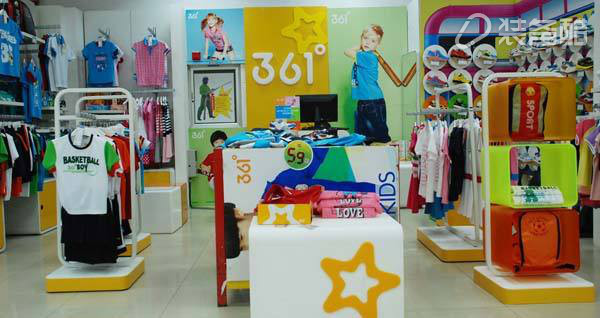
(361 degrees children's clothing shop)
In fact, “diversity†and “all sports†have already taken the lead. Pathfinders (300005.SZ) who are specialized in outdoor sports origin are under pressure from the footwear industry. Since 2013, they have been involved in air tickets and ski resorts. Outdoor travel online platforms and other services, expanding business categories, but did not bring about a fundamental change. In the second half of last year, Pathfinder who trod around in a circle announced that he would return to the main business of outdoor sports equipment.
The concept of "all sports" and "ecosphere" is not a magic drug. In the Jinjiang listed shoe company, from 2011 to date, its share price almost all of them.
To some extent, An Ta Ding Shizhong may be the only one among the Jinjiang shoe owners to really jump out of the “township entrepreneur†thinking. In 2004, Ding Shizhong, who did not lack funds, saw Li Ning's success, decisively broke the concept of family business, and decided to let the company go public. In 2009, Anta bought the international brand “FILA†and started a multi-brand strategy.
After the decline in 2012 and 2013 results, Anta Sports (02020.HK) had a revenue of 13.4 billion in 2016 and a net profit of 2.4 billion, which doubled from the trough in 2012. Its share price has risen from the lowest of HK$3 in 2012 to the latest HK$38/share, making it the only sample of Jinjiang shoe companies that has been approved by the market.
"For the once brutal growth of Jinjiang shoe enterprises, the most glorious period has long passed, to survive, it is bound to have his own characteristics and extraordinary place, can understand their industrial restructuring and transformation, but the shuffle will continue The eliminated, or doomed to be eliminated, this is normal again.†For the future of Jinjiang shoe companies, Lu Qinghua made such comments on Tencent's Prism.
When will the next Del Hui and Xi De Long appear in Jinjiang, who will it be?
Author: Li Chao
Editor: Yang Hao
Article transferred from the prism, if it involves infringement please contact delete
The flexible yarn shade cloth and the light-transmitting cloth are evenly spaced.
By manually pulling the pull beads, the lighting state can be adjusted at will,
and the glare can be effectively filtered, which is not only dustproof and soundproof,
but also has privacy, and is used in any home and office.
Cordless Zebra Blinds,Custom Zebra Blinds,Grey Zebra Blinds,Zebra Blackout Blinds
WUXI MIFUN INTERNATIONAL TRADE CO.,LTD , https://www.mifunblind.com